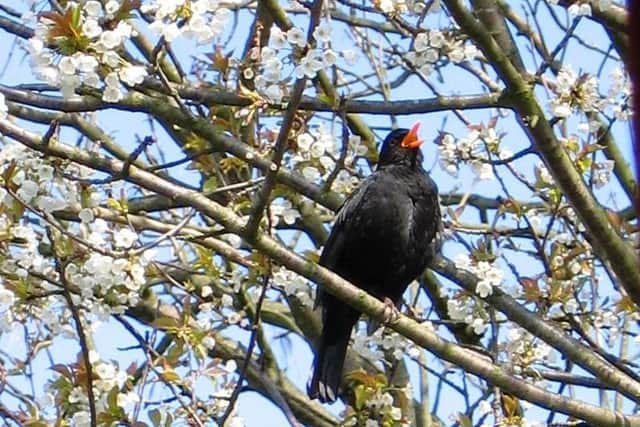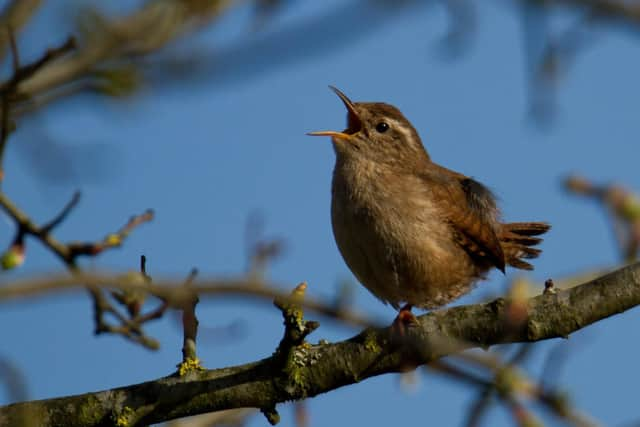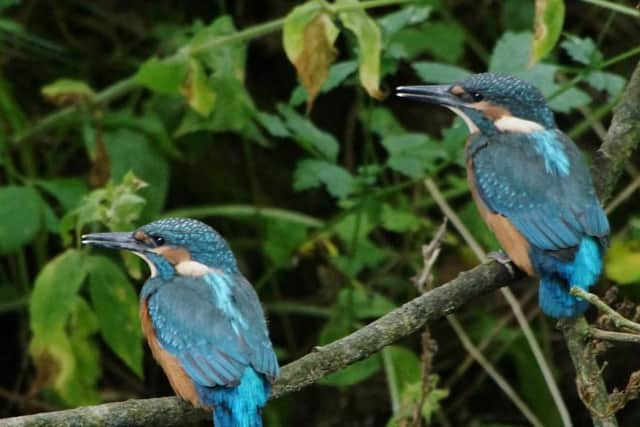Are the birds singing louder this year? This is the verdict from the Lancashire Wildlife Trust
and live on Freeview channel 276
If you want to catch the dawn chorus your socially distanced walk should be between 4am and 5am according to experts from the Lancashire Wildlife Trust.
And though you should be socially distanced from other people on your sunrise saunter just because of the timing, you will have musical company aplenty as the nation’s birds burst into full song.
Advertisement
Hide AdAdvertisement
Hide AdIf you’re feeling a little lazier Alan Wright, Campaigns Manager at the Wildlife Trust for Lancashire, Manchester and North Merseyside, advises that even by 7am there will be a good chance to hear the song thrush, wren, tit and blackbird in full vigour ... and the avian tunes will continue all morning.


He said: “If you live close to trees simply open your bedroom window and you should be able to hear a right racket going on.”
Alan is mindful that conservationists are currently being asked a topical question - are the birds singing louder this spring?
He said: “Well if you listen to the sound of the dawn chorus this week, wildlife doesn’t seem to be missing us at all,There are two factors involved here, we believe. The lack of noise pollution from fewer vehicles being on the road is definitely opening up gaps for our wild birds to really let rip this year, as they are looking for love on their patch. And people have time to notice wild sights and sounds. Blackbirds, robins, great tits and wrens seem extra loud.
Advertisement
Hide AdAdvertisement
Hide Ad"The noisiest in the dawn chorus are the blackbird, robin and thrush. Wrens and great tits are loud during the day. And you should hear the cooing of collared doves. Starlings and sparrows also make a racket."


He stressed conservationists are not underestimating the tragic human cost of the Coronavirus but also believe that lessons could well be learned from the emergency measures we’ have been following.
Alan said: “I really hope we are learning from this crisis. Many lives have been lost as the virus has spread but I am sure the health measures have helped to save many thousands of people. And we shouldn’t be afraid to mention this knock-on effect on that is benefiting our wildlife. Let’s hope we can look at this and improve the way we live in the future in a way that supports nature.
“The songs of thrush and robin are filling the early mornings with sound. In some cases, it might just be that we are noticing the birdsong more as the noise from vehicles and general hubbub has turned down its volume.
Advertisement
Hide AdAdvertisement
Hide Ad“I certainly think that many people go through their lives without noticing some of the wonderful noises and the creatures making those noises around them.”


Wildlife experts say that the lessening in pollution, globally, is also affecting animal behaviour. Alan said: “Our swallows and swifts are now flying back into urban areas which have always had problems with fumes from cars and industry. They are breathing fresher air into their little lungs, which can only be good
for them.”
The lockdown also mean that litter has reduced in towns and countryside, with even the seas benefiting from this break from human pollution.
More generally plants and other wildlife have been flourishing in the lockdown. Alan said:“Less footfall is great for plants and insects and animals that live in them. Bluebells in our local wood are undisturbed and are looking amazing at the moment without lots of photographers trampling all over them.


Advertisement
Hide AdAdvertisement
Hide Ad“Roe deer are certainly being seen a lot more because of less disturbance and I watched a weasel wandering along a riverbank for many minutes, it was happy that there were no dogs splashing around in the water. We have had reports of otters on the Ribble.”
He continued: “I was walking along a river bank the other day and I thought, cleaner rivers and streams will be much better for our iconic kingfishers, one of our most colourful birds. They will be feeding in cleaner water at the moment. And for the third day running I watched and listened to noisy curlew flying over my garden. These are the sights and sounds we should all be seeing every day.”
• The Wildlife Trust for Lancashire, Manchester and North Merseyside seeks to protect and promote wildlife in Lancashire, seven boroughs of Greater Manchester and four in Merseyside, It manages some 40 nature reserves and 20 local reserves covering woodland, wetland, upland and meadow areas, including the Brockholes nature reserve at Samlesbury, near Preston. The Trust has more than 30,000 members and more than 1200 volunteers.
*Share the joy and send your top lock down walk/garden photos to [email protected] and we will feature a selection.